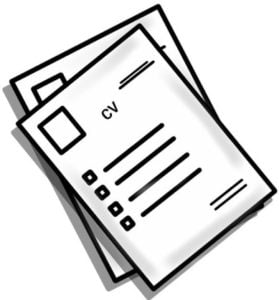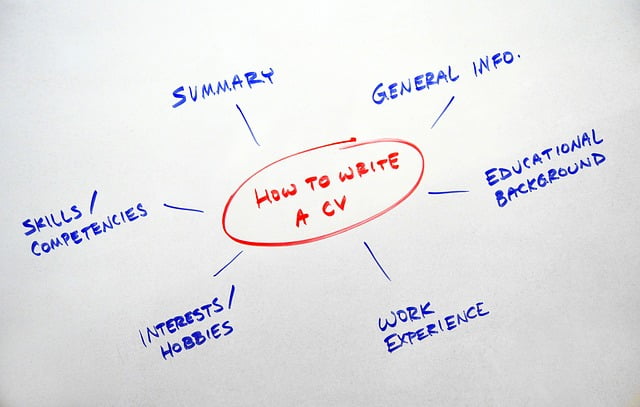Examine every word you put on paper. You’ll find a surprising number that doesn’t serve any purpose. – William Zinsser
As a recruiter, I’ve come across many CVs with many different styles and sizes. Out of the top of my head, I could say that maybe every tenth CV I read catches my eye in terms of having structure with absolutely necessary information needed for applying to a job position. That’s not a good thing. Let’s say John is looking for a new job and he wants your advice on how to properly write one and potentially be successful with it. The CV he sent has the usual Europass format, a blandly structured experience with little to no information and not enough of the same about his character in terms of personal interests or achievements consisting only of a single page. On the other hand, Jenny sends you her CV which is a complete opposite of John’s. Her CV is overloaded with information on every job experience, has a completely custom style format which is all over the place and has a whopping number of four pages. Both cases are far from the ideal type of CV you’d want your prospective employer to read in order to be successful. How should a CV be constructed in order to catch a recruiter’s or hiring manager’s eye?
What job seekers rarely understand is the fact how easily their CV can be misplaced, overlooked or glanced over because it wasn’t prepared well, didn’t contain enough information/had too much information or was too general in the overview despite targeting a specific position. If you’re looking for a way to have an effective CV, think about how easily readable it has to be, how concise in information it has to be and choose a format which can place that information in an aesthetic and yet simple way. Let’s break it down in couple of paragraphs.

Mistake #1: too much information
It doesn’t sound like this could be the case with this topic but this does happen more often than not. Even if you’re not a recruiter or a hiring manager, you wouldn’t want to read a CV with more than five pages long, would you? Each of your experiences doesn’t have to have an essay of what your tasks and achievements were. You can just write the general facts in no more than six or seven bullets. The rest of the information can be expanded on during the interview which is a good chance to incite more interest from the person interviewing you. Just be sure to bullet the most concise and relevant information. The same can be said for your personal interests, achievements and education. Remember that the goal is to get them interested enough with relevant information on the CV on which you can expand on during the interview. If you do that, you’re one step close to getting that position. Concise, concise, concise and yet comprehensive!
Mistake #2: too little information
This one is the most prevalent in the world of uninspiring CVs. I’d say this is the reason many recruiters get frustrated because there’s not enough information in a situation with many candidates and a tricky timetable, especially with if it’s a complex position in question. Blue collar positions may have more success in this scenario because of the common sense of the job tasks but it still wouldn’t hurt to have enough relevant information. We have to remember that recruiters and hiring managers paint a picture of a candidate in their heads just by reading the CV. In order to bypass as much bias as you can from their respective side, it’s best you follow this through. On the flip side, if you have too little information in your CV and you get a call from the recruiter, they will screen you over the phone (which might’ve been avoided if the right information was in the CV) and you would have to give valuable information over the phone which would probably sound better in person. The worst case is you don’t get invited for the interview because you failed the phone screening. Remember that if you don’t have at least a full page of information, something is wrong.
Mistake #3: bland or complex format
Didn’t think there can be CVs which are hard or tricky to read? There are many of them and aesthetics should be one of the most important things when building an effective CV. Since it’s all about catching the attention, you want your information to be easily readable. You don’t want a recruiter finding the right information in the left down corner when the appropriate place for it to be is on top of the page. Try to incorporate a style in which you divide a page into two sides, one with experience and one with personal interests or education. That way, a recruiter can quickly glance left and right without jumping to a second page. Just a suggestion but there are many more things which can be done to make it better and make yourself more visible in contrast to other candidates.

Takeaway
Essentially, a CV is a gatekeeper to a potential interview, much like a secretary is a gatekeeper to a CEO when a sales person is trying to get to a person in charge. In order to sell yourself in the first step, you have to have a CV which is concise, on point and easy to read. Nowadays, you shouldn’t rely on the recruiters’ ability to grasp and catch every piece of information on the go. You have to help them by highlighting your skills and competencies in a manner that is visible and approachable. Even though it’s a first step in the process, making through the door significantly improves your chances of success as well as sharpening your self-confidence. If you do it right, you never know, that last edit in your CV just might be the one which got you a new job.
